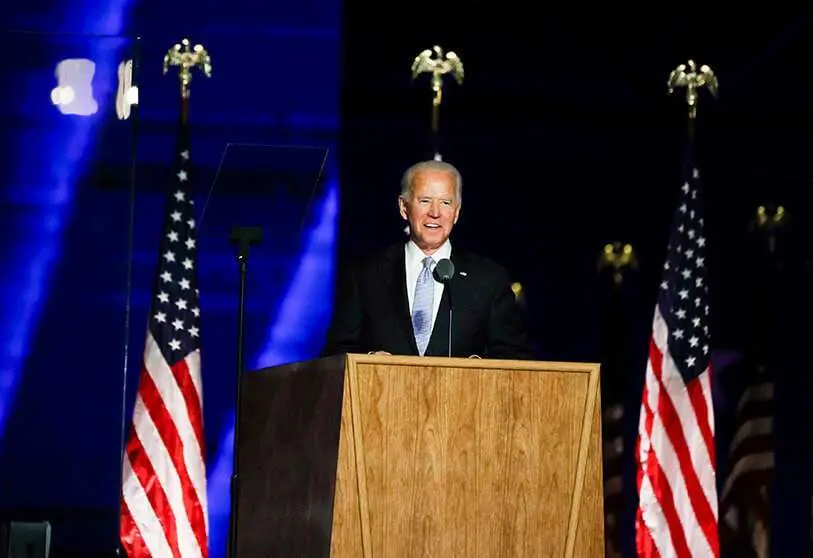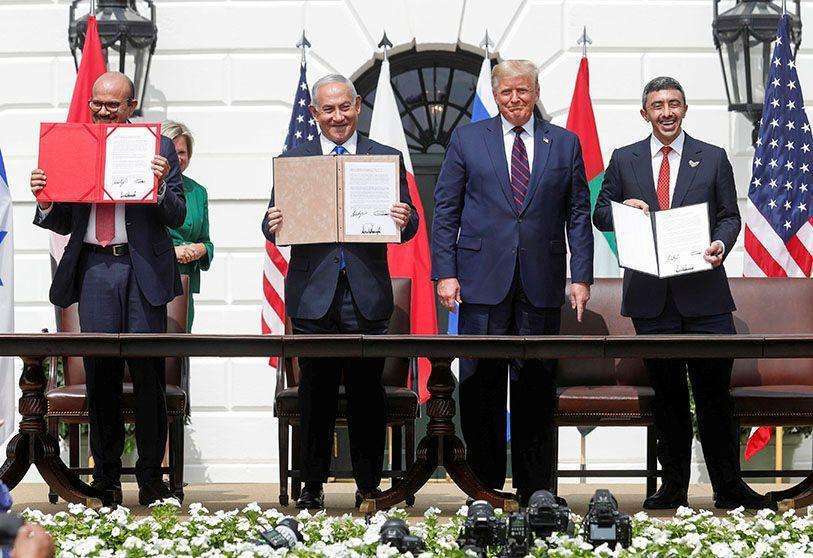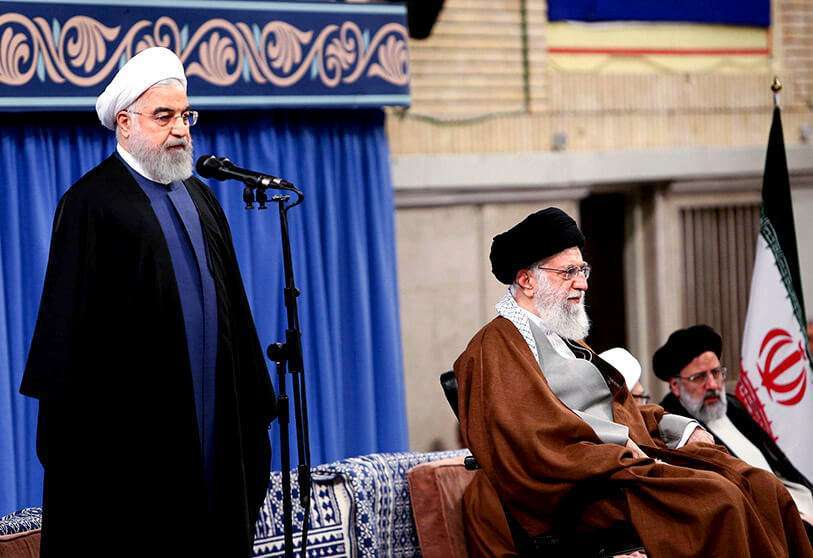Challenges for the Biden Administration in the Middle East

Joe Biden will try to make the Middle East region more stable.
For Barack Obama, as he explains in his book 'A Promised Land', one of the reasons why he chose Joe Biden as his running mate for the 2008 presidential elections, beyond the need to have a white member of the 'establishment' with extensive experience in national politics, was his vast career in international politics.
Biden held, among other positions, the chairmanship of the Senate Foreign Affairs Committee from 2001 to 2009, when he became vice-president. However, 13 years after accepting that proposal, it is now he who inhabits the Oval Office and is in charge of making decisions.
One of his many challenges will be precisely to address foreign policy, more specifically to weave a defined plan for the Middle East, the most unstable region on the planet and where all the spotlights will be focused. Although it is not the same region he knew as vice-president, and even less so as a senator.
However, the Democrat is expected to be partially absent during the first months of his mandate. The internal crisis that the country is going through forces him to prioritise domestic politics. For this reason, Antony Blinken's role as head of the State Department will be important at the outset. Historically, the most influential secretaries of state have been those in close contact with the president, and Blinken's case is significant, as he has been part of Biden's team for two decades.

Away from Trump's 'America First' and isolationism, Biden proposes a return to multilateralism and the restoration of US global leadership. Some experts have pointed out that his administration is likely to be something akin to Obama's third term. The Democrat embodies a continuity with his predecessors in office. While his plans follow a similar pattern to those of Clinton, Bush and Obama, the discordant note has been struck by former President Trump.
The Republican's approach has reshaped decades of Middle East diplomacy. Some of his most important decisions have been the withdrawal from the Iran nuclear deal, the assassination of Qassem Soleimani, the strengthening of relations with Israel, the agreement to withdraw troops from Afghanistan and the Abraham Accords, among others.
Israel's political instability will be a factor. The country is heading towards its fourth election in two years, although the continuity of Prime Minister Benjamin Netanyahu, one of the key figures in the region, is the most plausible option. During the last trip to the country by former president Trump, 'Bibi' - as he is known - acknowledged that he had been "the best friend Israel has ever had in the White House".
These words make sense considering that the Republican was the first US president to legitimise Israeli settlements and support the one-state path. Moreover, he has established the US embassy in Jerusalem, recognising it as univocally Israeli property. But above all, the most important move has been the rapprochement between Israel and the Gulf states through the historic Abraham Accords.

The latter may give Biden the gift of a more stable Middle East. Indeed, the president praised these agreements as a "historic step in bridging deep divisions", but issued a warning: "I believe Israel has to be prepared to work towards a genuine two-state solution". However, the Biden administration will not review the recognition of the Golan Heights as Israeli territory, nor the relocation of the US embassy.
The Democrat's arrival has prompted reactions from, among others, UN Secretary General António Guterres, who admitted that "there are reasons to hope for progress toward ending the decades-old Israeli-Palestinian conflict after years of inaction". "We were completely locked down in a situation in which there was no progress visible," Guterres added in reference to the Trump administration.
"The marginalisation of the Palestinians that was part of that agreement will not be welcomed by this administration," notes Elizabeth Shakman Hurd, a Northwestern University professor and expert on political science and the Middle East. But Isidoro Jiménez, Professor of International Relations at the Francisco de Vitoria University, warns: "Let's not forget that the United States' great ally will continue to be Israel".
In this vein, the Abraham Accords will also set the agenda for US relations with the Gulf monarchies in the future. White House press secretary Jen Psaki said the new administration would "revisit the commitments" made by the Republican. According to Jiménez, "The Accords possibly represent the main success of Trump's foreign policy". These commitments were seconded by the United Arab Emirates and Bahrain, as well as Sudan and Morocco.
We learned last week that the US State Department had suspended arms sales to the UAE and Saudi Arabia. While the Emirati ambassador to the US, Yousef al-Otaiba, played down the decision, saying that they would work with the Biden administration "on a comprehensive approach to peace and stability in the Middle East", the Saudi authorities made no statement on the matter.
The killing of dissident Saudi journalist Jamal Khashoggi by Saudi agents in 2018 and the use of US weaponry to target civilians in Yemen have strained relations between the two countries in recent months.

In the midst of this situation, however, the US military has made public that it is "exploring the possibility" of using a Red Sea port in Saudi Arabia, as well as two additional airfields in the Kingdom, as a measure to address Iranian influence over the Houthis in Yemen.
The war in Yemen is another priority for the US. Secretary of State Antony Blinken said on Wednesday that they will try to "reverse sanctions on the Houthis, despite continued aggression against Sana'a, our Saudi allies, and human rights abuses and other atrocities".
Blinken also acknowledged the existence of a "Saudi-led campaign" that has also contributed to the world's largest humanitarian crisis. And that the Biden Administration needs to "do everything in its power" to maintain humanitarian aid in Yemen.
The nexus between the Biden administration and Saudi Arabia, as well as the rest of the region, is the persistent threat from the Tehran regime. Trump's decision to abandon the nuclear deal - reached in 2015 during the Obama administration - has allowed Iran to advance its nuclear programme and accumulate large stockpiles of enriched uranium.
The assassination of Qassem Soleimani more than a year ago by US drones, and the elimination of Mohsen Fajrizadeh by Israel, according to Iranian officials, stretched the tension to the breaking point. Iran has not ceased its threats against Israel, the US and especially Donald Trump.
Nevertheless, Biden has stated that he intends to revive the nuclear deal with Iran. The success of the strategy "depends on convincing his Israeli partner of the positive aspects of resuming the agreement", says Isidoro Jiménez. Elizabeth Shakman Hurd believes that a return to the deal "would be welcomed around the world, with the notable exception of Israel and the Saudis".
In addition, the Biden administration is committed to reversing the sanctions imposed on the Ayatollahs' regime. Supporters argue that their unilateral imposition has damaged diplomatic relations and has mainly affected Iranian citizens. Other analysts have, however, acknowledged the regime's economic resilience in the face of sanctions.
The Biden administration intends to renew and improve diplomacy with Iran, but the Persian authorities remain cautious about signs of rapprochement. Meanwhile, Joe Biden announced that he will not reverse sanctions until Iran stops enriching uranium to the level it is currently doing in breach of the terms of the 2015 nuclear deal.
State Secretary Antony Blinken formally appointed President Barack Obama's former senior foreign adviser, Robert Malley, as the US envoy to Iran. State Department spokesman Ned Price endorsed the decision on the grounds that Malley has "a record of success in negotiating constraints on Iran's nuclear programme" and that Blinken is "confident he can do it again". Malley was also a member of the National Security Council involved in both the 2000 Camp David peace talks between Israel and the Palestinians and the Iran nuclear deal negotiations.

Widely seen as a failure of the Obama administration, Biden's campaign plans promised to increase US involvement in Syria and increase pressure on President Bashar al-Assad.
The new administration has also announced that it will extend protection for Syrian refugees in the US until September 2022. A measure dismissed at the time by Trump and which affects a total of 6,700 Syrians.
During the last year of the Republican's mandate, the United States reinforced its position in the country by assigning troops to control bases in areas close to the oil fields. Most of the US troops in Syria were redeployed in the east, where they now control a large oil-producing area of the country.
The US military sought to break up Daesh sleeper cells and reintegrate the Rojava Forces and the Syrian Democratic Council, boosting internal dialogue with the Kurdish National Council and increasing Arab participation and representation in the Self-Defence Forces.
The US also sought to curb Turkey's assault on SDF-controlled areas, a challenge that the Obama administration failed to meet. In addition to promoting defensive actions against attacks by Iranian Revolutionary Guard-affiliated militias in the east of the country.
"The politics of the al-Assad regime and the opposition will remain less important to Biden," maintains Suhail al-Ghazi, a member of the Tahrir Institute and activist in support of the Syrian revolution. However, the researcher assures that "the US will prolong its presence in the northeast of the country, as well as in the Al-Tanf border crossing", one of the three passages that connect Syria with neighbouring Iraq.
I do not believe this is a rush to war. I believe it’s a march to peace and security. I believe that failure to overwhelmingly support this resolution is likely to enhance the prospects the war will occur," Biden said in support of the 2003 invasion of Iraq.
Under Trump, 13 years after that operation, the US has kept approximately 5,200 troops in Iraq with Baghdad's backing. However, the Iraqi parliament voted to remove foreign troops from the country just over a year ago, in part because of pressure from Iran and attacks by Shia militias backed by the Tehran regime on the US embassy.

The US State Department announced that it would reduce its presence in the country by reducing the number of troops to 3,000 in September. The troops in Iraq are aimed at reducing Daesh, although US-led coalition officials say Iraqi forces have the capacity to handle the situation on their own.
During the months of campaigning, Biden responded that 'yes, as long as there's a plan to figure out how they're going to deal with Daesh' when asked about troop reductions in Iraq. It is therefore assumed that the new administration will also review the action plan.
"Let's remember that Trump is the only president in recent years under whose administration the United States has not started a war", points out Isidoro Jiménez. "Both Obama and Trump, despite their differences, have opted for a withdrawal from places of conflict such as Iraq and Afghanistan, in which thousands of US soldiers have participated".
The Biden administration has already stated that it will review Trump's agreement with the Taliban. This called for the US to reduce troop levels to 2,500 and withdraw all forces deployed in Afghanistan as of next May.
No firm decision has yet been made. The Pentagon warned that the Taliban's refusal to honour commitments to reduce violence in Afghanistan "is raising doubts" about whether all US troops will be able to meet the deadlines. "The United States must guarantee to the world that if it leaves this country it is because the situation is more stable, and that is not going to be easy," Isidoro Jiménez explained.
Analysts agree that Biden has the ideal opportunity to establish a certain balance in the region after decades of upheaval. And while it is true that the situation is subject to change, his mandate may serve to continue Trump's dynamic and not open up more fronts on the map.








